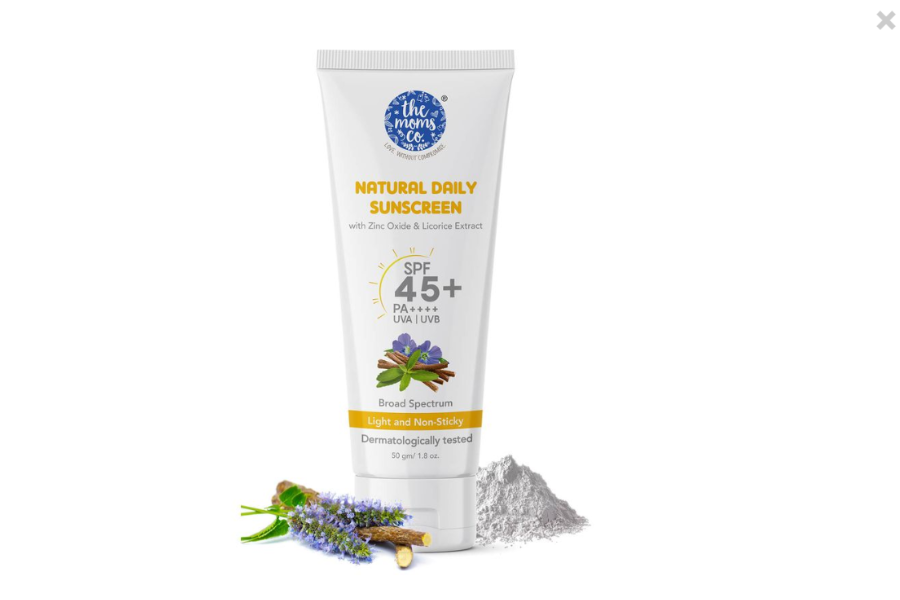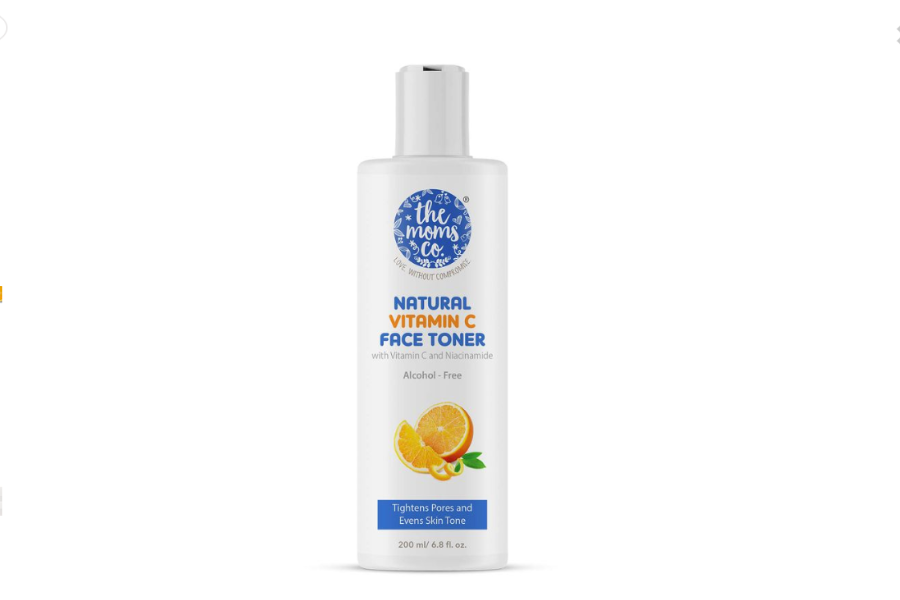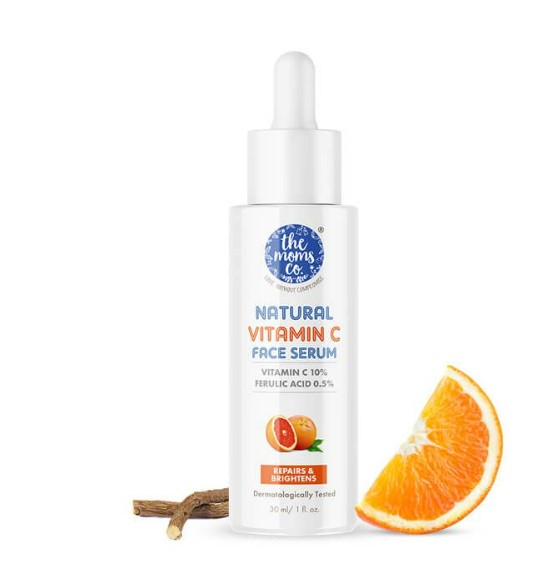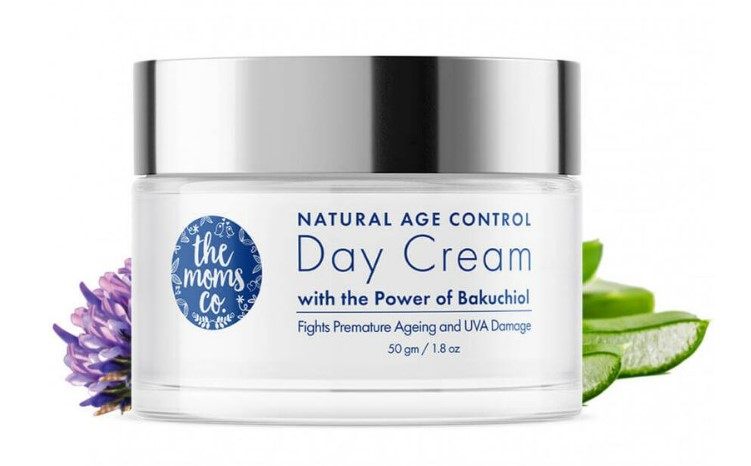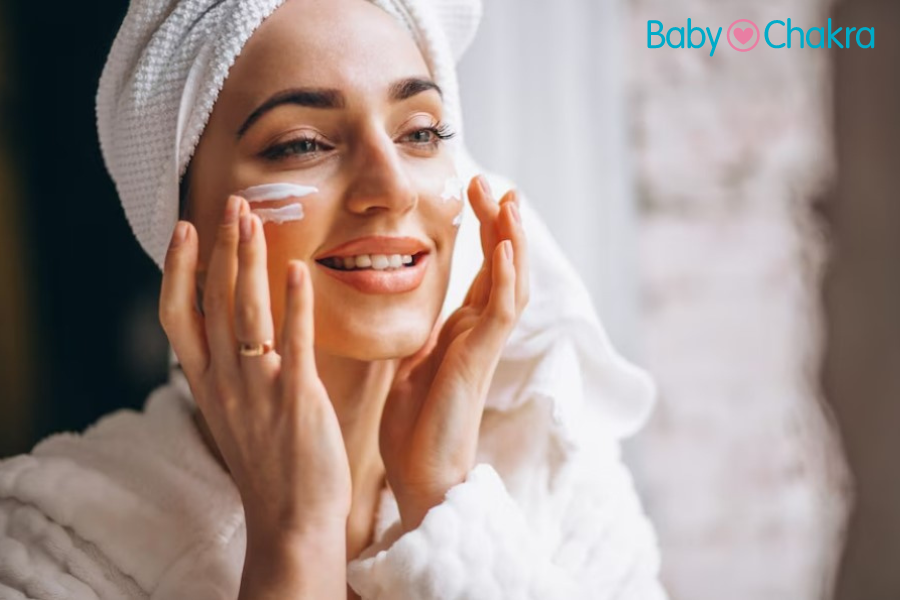
6 Myths About Using Sunscreen During Pregnancy That You Probably Believe, But Shouldn’t
29 Mar 2023 | 6 min Read
Sudeshna Chakravarti
Author | 799 Articles
The regular use of sunscreen during pregnancy is highly stressed by skincare experts, as it helps protect your complexion from the harmful rays of the sun, and also prevents hyperpigmentation and sunburns. However, despite its efficacy, sunscreen is one of the most misunderstood skincare items, and there are many myths about the safety of using this product during pregnancy.
While some believe that sunscreens contain harmful ingredients that adversely affect your pregnancy, others feel that SPF can be skipped on days when it’s rainy or cloudy outside. But are these statements about sunscreen usage during pregnancy factually correct? Let’s find out!
6 Myths About Using Sunscreen During Pregnancy, Debunked
Myth 1: It is not safe to use sunscreen during pregnancy
Untrue! You can wear sunscreen during pregnancy, but the only thing you need to consider is switching to plant-based and safe sunscreens to keep yourself and your baby safe. This is because many physical sunscreens contain toxic ingredients like oxybenzone, which are considered unsafe for use during pregnancy.
A wise alternative? Switch to mineral-based sunscreens formulated with titanium dioxide and zinc oxide. For instance, you can opt for The Moms Co.’s natural daily sunscreen, which contains pregnancy-safe ingredients like chamomile, licorice extracts, and calendula extracts that gently nourish your skin, and prevent dark spots and pigmentation.
The sunscreen also offers broad-spectrum protection against UVA and UVB rays and prevents sun-induced damage like redness and inflammation.
Myth 2: You can skip sunscreen on cloudy days or when you are indoors
This is one of the most common myths about sunscreen that many people believe. But here’s the thing, clouds aren’t natural blockers of sun rays. This means that even though you do not feel the sun hitting your skin, you are not fully protected against UVA and UVB rays.
Sun rays can still penetrate through clouds and cause irreversible damage to your skin, more so during pregnancy, as your complexion is pretty delicate during this time. Hence, you must wear sunscreen regularly, no matter what the weather is like during the day.
The same rule goes applies when you are indoors. The sun’s rays can seep through your window and affect your skin. This is why you should make it a point to apply SPF in your morning routine to ensure 100% protection against the sun and prevent skin concerns like melasma and hyperpigmentation.
Myth 3: Only the highest SPF will give you full-proof protection
Before looking into the reliability of this statement, let’s first understand what SPF really is. SPF simply means sun protection factor and refers to how long your sunscreen can keep you protected against UVA and UVB rays.
This might make you believe that a higher SPF means longer sun protection and a lesser number of reapplications throughout the day. However, a study conducted by the American Academy of Dermatology notes that a sunscreen with an SPF of 30 or higher is sufficient to protect your complexion against sun damage.
This means that you can safely use a sunscreen with an SPF of 45 + to keep your skin protected during pregnancy. Anything more than that is not necessary.
Myth 4: Applying sunscreen once is enough
This is by far one of the most dangerous myths about using sunscreen during pregnancy. The truth is that exposure to sunlight breaks down the ingredients in the sunscreen. This means that your SPF may not perform as effectively as the day goes by.
To reap the maximum benefits, you should reapply your sunscreen after every 2-3 hours to stay protected from sun damage. Also, constant sweating during the day can wear off your sunscreen, further making reapplication more crucial.
Myth 5: You do not get sunburns if you are in the water
As you know, water is a reflective surface. This means that when the UV rays hit the water’s surface, they reflect, and affect the area of your skin that aren’t under water. So there is a high chance that you may get sunburn even when you are in the pool.
To prevent sun damage, opt for a water-resistant sunscreen and make sure to reapply it after every 2-3 hours for optimal protection.
Myth 6: Using sunscreen during pregnancy can affect your sensitive skin
This is not completely true. As long as you choose a sunscreen that is formulated with plant-based and organic actives, such as titanium dioxide, zinc oxide, and chamomile extracts, your skin will not be affected by allergies or rashes.
All these ingredients impart soothing qualities and reduce inflammation and redness in your skin, and prevent sun-induced damage like hyperpigmentation and melasma.
In some cases, the presence of harmful chemicals like oxybenzone in your sunscreen can affect your skin and cause irritation. Hence, to be on the safer side, always opt for mineral-based and chemical-free sunscreens.
Conclusion
Now you know all the reasons why it’s crucial to use sunscreen during pregnancy, and why you shouldn’t be believing any myths about it without proper scientific evidence. As discussed, you can opt for a natural and mineral-based sunscreen to protect your skin and keep it nourished.
The Moms Co.’s sunscreen is 100% pregnancy-safe and designed #ForEveryMum to support her #ThroughEveryChange. This means you can safely add this product to your pregnancy routine without worrying about skin rashes or inflammation.
Recommended Pregnancy Care Products:
Also Read:
Hyaluronic acid during pregnancy: How does hyaluronic acid benefit your skin during pregnancy? Tap this post to know.
Pregnancy-safe skincare trends: Check out these skincare trends that you can safely incorporate into your routine during pregnancy.
How to use vitamin C during pregnancy: Everything you need to know about using vitamin C during pregnancy is right here in this post.
Cover Image Credit: Freepik.com
A


Related Topics for you
Suggestions offered by doctors on BabyChakra are of advisory nature i.e., for educational and informational purposes only. Content posted on, created for, or compiled by BabyChakra is not intended or designed to replace your doctor's independent judgment about any symptom, condition, or the appropriateness or risks of a procedure or treatment for a given person.

